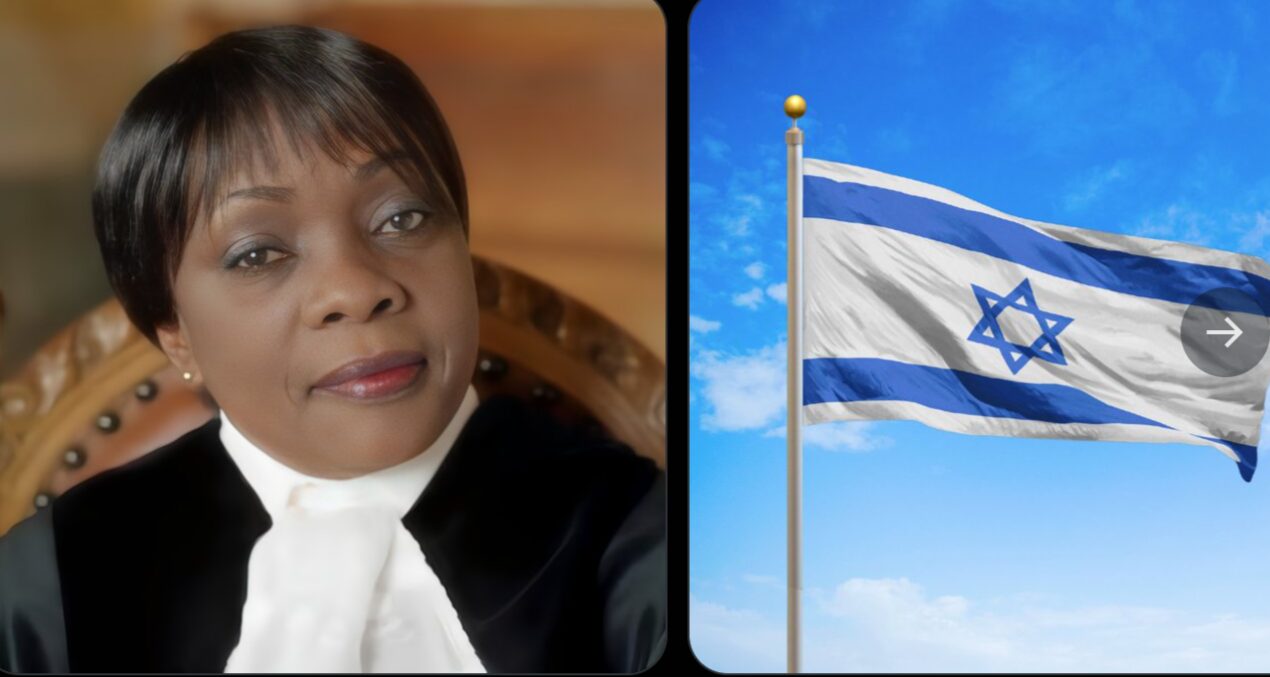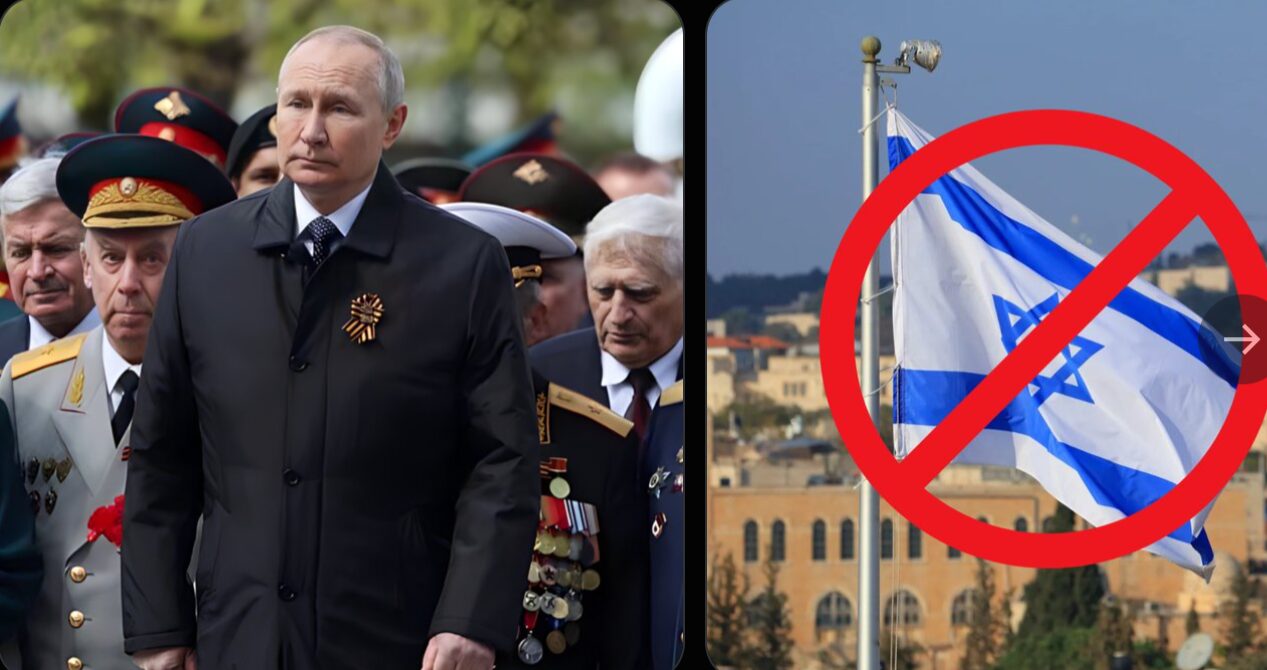PRO-ISRAEL Judge Sebutinde to be named new President of International Court of Justice
In a major development for the world of international law and diplomacy, Judge Julia Sebutinde of Uganda is set to be named the new President of the International Court of Justice (ICJ). Sebutinde, who has long been recognized for her expertise and contributions to international jurisprudence, is poised to become the first African woman to lead the prestigious court. While her appointment has been hailed as a milestone in promoting diversity within the ICJ, it has also drawn attention due to her pro-Israel stance, raising questions about how this could influence the court’s approach to sensitive international issues involving Israel and its relations with the Palestinian territories.
The ICJ, based in The Hague, is the principal judicial organ of the United Nations and is responsible for settling legal disputes between states and giving advisory opinions on international legal questions. The appointment of the court’s president is a significant event, as the individual in this role not only leads the court but also represents it in international affairs. Sebutinde’s selection is expected to have a lasting impact on the direction of international legal decisions, particularly those that concern global political tensions.
Judge Sebutinde’s Background and Legal Career
Julia Sebutinde has a distinguished legal career that spans several decades. Before her appointment to the International Court of Justice, Sebutinde served as a judge at the International Criminal Court (ICC), where she gained a reputation for her fair and impartial approach to complex cases. She was also part of the tribunal for the Special Court for Sierra Leone, which handled the trial of former Liberian president Charles Taylor.
Sebutinde’s expertise in international law, particularly in human rights and conflict resolution, has earned her widespread respect in legal circles. Her appointment to the ICJ in 2012 marked a significant achievement, as she became one of the few African judges serving at the court. Her track record on the ICJ, particularly her judgments related to state sovereignty and the interpretation of international treaties, has been marked by a commitment to upholding the rule of law.
While her qualifications and achievements are widely respected, Sebutinde’s views on international political issues, particularly her stance on Israel, have sparked controversy. Her pro-Israel position has raised concerns among certain factions who worry that her leadership could have implications for the court’s impartiality on cases involving Israel, especially those related to the Israeli-Palestinian conflict.
The Role of the ICJ President
The President of the International Court of Justice plays a pivotal role in the functioning of the court. The president is responsible for presiding over hearings, ensuring that the court’s decisions are made in accordance with international law, and representing the court at official functions. The president also has a role in setting the agenda for the court’s work, influencing the cases that are prioritized and the way they are approached.
Given the ICJ’s significant role in adjudicating disputes between states and issuing advisory opinions, the president’s leadership can have a profound impact on the global legal landscape. As such, the appointment of Sebutinde as president has drawn attention from governments, legal experts, and advocacy groups alike. Many observers will be watching closely to see how her leadership style and personal views shape the court’s handling of high-profile cases, particularly those involving contentious geopolitical issues.
Sebutinde’s Pro-Israel Stance and Its Impact on the ICJ
Sebutinde’s pro-Israel stance is one of the most discussed aspects of her career. Over the years, she has expressed support for Israel in various international forums and has been a critic of actions by the United Nations and other international bodies that she believes unfairly target Israel. Some critics argue that her views could influence her decisions as the president of the ICJ, particularly in cases involving Israel’s policies in the Palestinian territories.
The Israeli-Palestinian conflict has long been a focal point for the ICJ. The court has been involved in several landmark cases related to Israel’s occupation of Palestinian territories, the construction of settlements in the West Bank, and the legality of the Israeli security barrier. In 2004, the ICJ issued an advisory opinion stating that the construction of Israel’s separation wall in the West Bank violated international law and called for its dismantling. This opinion was controversial and has been a point of contention between Israel and the UN.
Given Sebutinde’s history of supporting Israel, her appointment as the court’s president has raised questions about the future of such cases. Will her leadership result in more balanced and impartial judgments, or will her personal views on Israel influence the court’s approach to issues involving the Middle East? This question has prompted both concern and hope from various factions around the world.
Supporters of Sebutinde’s appointment argue that her track record of impartiality and her deep understanding of international law will enable her to lead the ICJ effectively, regardless of her personal political views. They point to her tenure at the ICC and her work on international tribunals as evidence of her ability to separate her personal beliefs from her legal duties. However, critics fear that her leadership could lead to biased rulings in cases involving Israel, especially in the context of an increasingly polarized international community.
The Israeli-Palestinian Conflict and the ICJ
The Israeli-Palestinian conflict remains one of the most contentious issues on the international stage, and the ICJ has been at the forefront of legal debates concerning this conflict. The court has heard several cases related to Israel’s treatment of Palestinians, including the 2004 advisory opinion on the construction of the security barrier. In this opinion, the court concluded that the barrier violated international law, a decision that was met with strong opposition from Israel.
In addition to cases related to the security barrier, the ICJ has also addressed other issues such as the legality of Israel’s settlement policy and its treatment of Palestinians in the occupied territories. These cases have often been contentious, with Israel arguing that the court’s decisions are politically motivated and fail to account for its security concerns.
As the new president of the ICJ, Sebutinde will likely face pressure from various sides on the issue of Israel. Some will argue that the court should take a more robust stance against Israel’s policies in the Palestinian territories, while others will call for a more nuanced approach that takes into account Israel’s security concerns and its right to self-defense.
Sebutinde’s pro-Israel stance could influence how the court handles these cases. For example, she may be more inclined to take a less critical view of Israel’s actions or to emphasize the need for a negotiated solution to the conflict rather than unilateral judgments. However, it is also possible that her leadership will be defined by a commitment to upholding international law, regardless of political considerations.
Global Reactions to Sebutinde’s Appointment
Sebutinde’s appointment as the President of the International Court of Justice has been met with a range of reactions from the international community. Supporters praise her as a trailblazer for women in international law and a highly qualified judge with a deep understanding of legal principles. Her leadership is seen as a positive step for the court, as it brings a new perspective to its operations.
On the other hand, some governments and advocacy groups that have criticized Israel’s policies in the Palestinian territories express concerns about the potential influence of Sebutinde’s views on the court’s decisions. These critics worry that her pro-Israel stance could bias the court in favor of Israeli interests, undermining the ICJ’s reputation for impartiality and fairness.
Despite these concerns, Sebutinde’s appointment underscores the ICJ’s role as a key player in shaping the future of international law and global diplomacy. Her leadership will be closely watched, especially as the court continues to address some of the world’s most pressing legal challenges, including issues related to the Middle East, human rights, and international humanitarian law.
Looking Forward: The Future of the ICJ Under Sebutinde
As Sebutinde steps into her new role as President of the International Court of Justice, the world will be closely watching how she navigates the complex political landscape that defines international law. While her pro-Israel views may influence certain aspects of her leadership, her deep legal expertise and commitment to upholding the rule of law will likely shape her tenure. The future of the ICJ, particularly in relation to the Israeli-Palestinian conflict, will depend on her ability to balance personal beliefs with the court’s duty to impartially apply international law to all states, regardless of their political or strategic interests.

















Post Comment